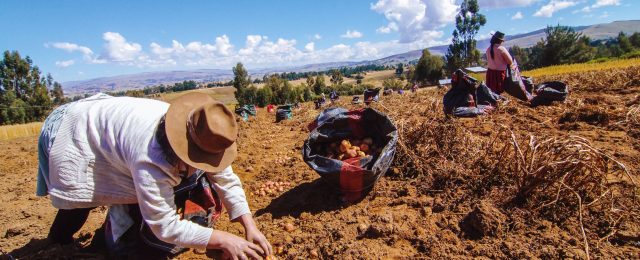Why benchmarks matter for climate-smart business

We’re simply not on track to transform our food systems in the face of the climate crisis. UN Secretary General António Guterres called the most recent IPCC report a ‘code red’ for humanity. Our pace of change is far too slow – we need a transformation and fast. But the findings of World Benchmarking Alliance’s first ever Food and Agriculture Benchmark are shocking. Of the 350 of the world’s most influential food and agriculture companies, only 26 had emissions reduction targets aligned to limit global warming to 1.5°C. Even more worrying is that 188 companies did not have any target whatsoever. This is unacceptable in the face of a climate emergency, when food systems account for a third of all global emissions from human activity. The benchmark is ‘code red’ for companies. Read on the Food and Agriculture Benchmark
Our goal is clear, transformed food systems that helps the world achieve the UN Global Goals on getting to ‘Zero Hunger’ while accelerating ‘Climate Action’ and forging catalytic ‘Partnerships’. The alliance between the World Benchmarking Alliance and the CGIAR Research Programme on Climate Change, Agriculture and Food Security (CCAFS) is about improving the livelihoods of millions of smallholder farmers through better technologies, practices, advisory services, institutions and social safety nets.
CCAFS alliances with companies and other influential private sector organisations have produced indispensable resources. These include the ‘Smarter metrics for climate change and agriculture’, developed with the World Business Council for Sustainable Development (WBSD), which helps companies measure and monitor progress on climate action. If these resources and many others from other organizations were being used effectively, we would not see such a glaring gap. So what’s missing?
- Leadership: Often the most transformative changes occur when leaders push for sustainability as a core element of business. We have seen this in some of the companies that lead on sustainability. We need more inspiring and committed leadership in the food and agriculture sector.
- Empowerment: It is easy to be critical of companies for not apparently doing enough. But there are challenges that companies face too, so empowering companies with the tools and partnerships that they need to transform is essential.
- Critical mass: Pioneering companies are still the exception, we need to make these exceptions the norm to get the transformation that is needed in the system.
This year, with the first ever UN Food Systems Summit and COP26, expectations are high for political momentum that resolves the food and climate crises. The WBA Food and Agriculture Benchmark can foster leadership, empower companies and develop the critical mass for transformation.
The power of alliances inspired CCAFS to collaborate with the UK’s Foreign, Commonwealth and Development Office on a global campaign for COP26 – Transforming Agricultural Innovation for People, Nature and Climate. This campaign’s emerging ‘Action Agenda for Innovation in Agriculture’ (aka ‘The #ClimateShot) seeks to tap into the power of innovation for a transformation in food systems. This vision can only be realized if the call for change is heard loud and clear including by companies. Find out how your business or organisation can ally with this campaign. Read about our Ally’s campaign here
As Einstein said, “We cannot solve our problems with the same thinking we used when we created them”.
We urgently need fresh thinking and innovative business models fused with exciting new alliances to win the fight against climate change.

Written by: Dhanush Dinesh, Head of Partnerships and Outreach, CGIAR Research Program on Climate Change, Agriculture and Food Security (CCAFS)

